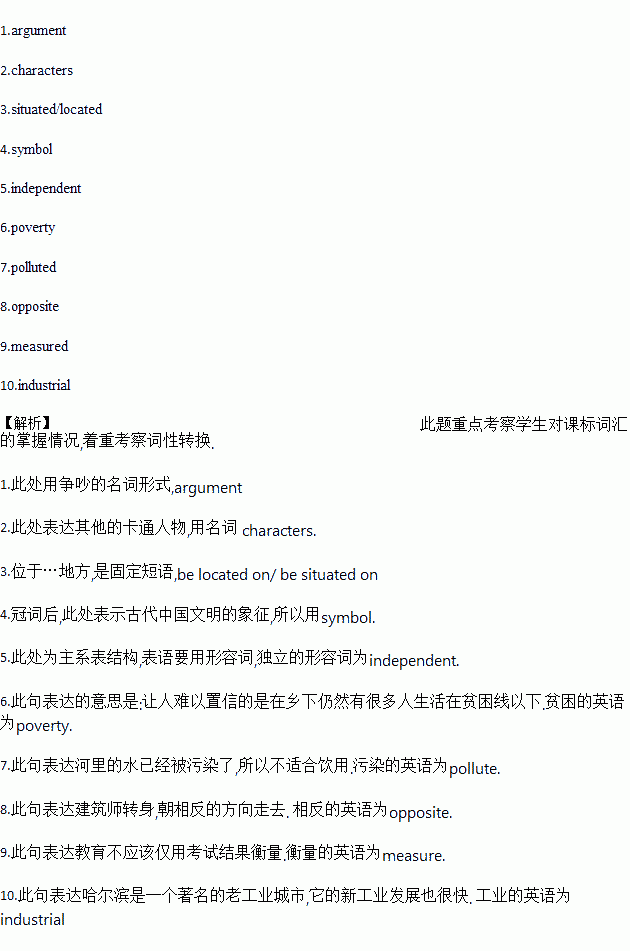题目内容
1.I broke the vase during an _________ (争论) with my husband.
2.The artist drew Mickey Mouse or some other cartoon _________ (人物) on his T-shirts.
3.Barcelona is the second largest city of Spain and is ________ (位于) on the northeast coast.
4.The Great wall of China is a _________ (象征) of ancient Chinese civilisation.
5.Lisa is completely _________ (独立的) and receives no money from her family.
6.It is unbelievable that there are still many people in rural areas living below p______ line.
7.The water in the river has been p________, so it isn't fit to drink.
8.The architect turned around and walked in the o_________ direction.
9.Education shouldn't be m_________ only by examination results.
10.Harbin is a famous old i__________ center in China, but its new industry also develops very quickly.
--Oh,you _____ that because you can apply on line.( )
| A. | don't need to do | B. | mustn't do | ||
| C. | can't have done | D. | needn't have done |
| A. | a;/ | B. | the;/ | C. | the; an | D. | a; an |

